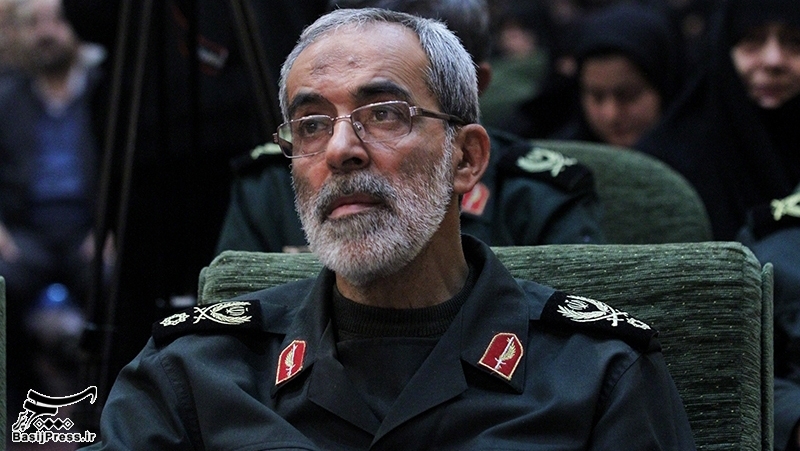CHRI – One month before Iranians head to the polls, a senior commander of Iran’s Islamic Revolutionary Guards Corps (IRGC) has revealed that President Hassan Rouhani opposed pressure to ban the popular Telegram application’s newly released “Voice Calls” service.

“In a meeting with Rouhani, we emphasized that allowing Telegram to initiate a voice calling service in Iran would prevent us from having any kind of control. But the President replied, ‘Why are you opposed to any kind of technology imported from the West? Telegram is a symbol of technology and modernism. We should import it to our country,'” said General Hassan Nejat, the head of the IRGC’s Intelligence Organization, on April 20, 2017.
Three days before he made the comments, Telegram’s voice call service was deemed a threat to national security and blocked by the conservative judiciary via a direct order to 20 internet service providers.
In a statement announcing the launch of the free service, Telegram said it had implemented encrypted security measures to protect users. Such measures would make it more difficult for Iran’s security forces to hack into citizens’ accounts.
Since the beginning of the rise of social media in Iran in 2009, hardliners in government have consistently cracked down on popular apps ahead of elections.
The Rouhani administration has repeatedly called for less governmental control over the internet, which is heavily restricted and censored in Iran. This has invited the scorn of not only the agencies that police cyberspace, but also hardline politicians seeking to unseat him in the presidential election.
“Telegram’s Voice Calls was blocked by an authority outside the executive branch and the responsibility lies with other friends who decided to take this action,” said Rouhani government spokesman Mohammad Bagher Nobakht on April 18.
Nobakht’s response distancing the government from the ban, and the revelation of a meeting between IRGC officers and Rouhani, suggests that the hardline IRGC exerted its influence on the judiciary to block the call service after failing to gain the president’s backing.
Addressing a military rally in Mashhad, northeastern Iran, Nejat also said a change in government was necessary to stop the country’s “continuing gravitation” towards the West.
“In the present situation, it’s a necessity for a revolutionary government to come to power,” he added.
In mid-March, the IRGC’s Intelligence Organization arrested the admins of 12 Telegram channels that promoted reformist factions, and Rouhani, who is running for a second term in next month’s election.
The names and the number of those arrested have not been revealed, but some are still in detention despite calls by Rouhani, the Intelligence Ministry and reformist legislators for the admins to be freed.
Investigations by the Center for Human Rights in Iran (CHRI) of hundreds of Iranian channels on Telegram reveal that hardline conservatives are far less popular than their more moderate rivals on the app.
In this respect, social media, and particularly Telegram with its estimated 40 million active Iranian subscribers, has been successfully challenging the ruling establishment’s strict censorship and control of news outlets and other forms of media in Iran.
On March 15, 2017, Rouhani’s legal adviser Majid Ansari described a “media imbalance” tilted against the government.
“Even in the best of times, the state broadcasting organization (Islamic Republic of Iran Broadcasting) has acted as an anti-government faction,” said Ansari.
Many news outlets that receive state funds oppose the president and his supporters.
IRIB’s chairman is directly appointed by Supreme Leader Ali Khamenei, a staunch hardline conservative.
In the immediate run-up to the February 26, 2016 elections for Parliament and the Assembly of Experts, conservatives demanded that the Rouhani government ban Telegram, but no such action was taken.
Mostly overshadowed by coverage of conservative candidates by many traditional news media outlets, Rouhani and his allies heavily relied on Telegram to reach voters in last year’s elections.
“Those who support blocking Telegram argue that the law forbids campaigning 24 hours before voting begins, but there’s no way to monitor or control that on social media. That’s why they want Telegram blocked,” wrote the state-funded Iranian Student News Agency (ISNA) in a report on February 21, 2016.
The article was later deleted, but some copies still exist.
In January 2017, CHRI learned that for the past three years, the Office of the Supreme Leader, the Judiciary, the Qom Theological Seminary and the police have unsuccessfully called on the Rouhani government to limit or ban access to Telegram to prevent domestic political dissent.
 Shabtabnews In this dark night, I have lost my way – Arise from a corner, oh you the star of guidance.
Shabtabnews In this dark night, I have lost my way – Arise from a corner, oh you the star of guidance.


